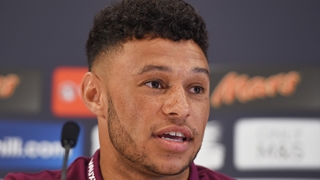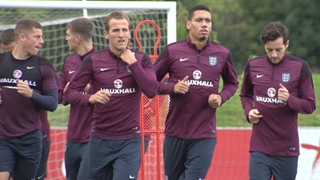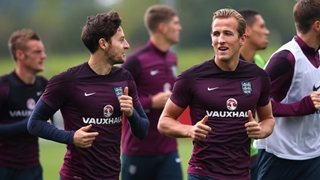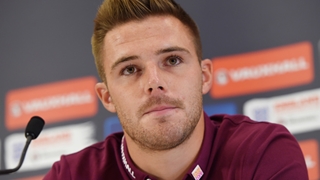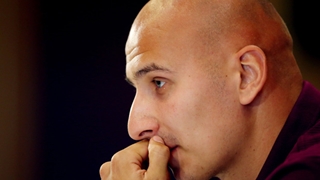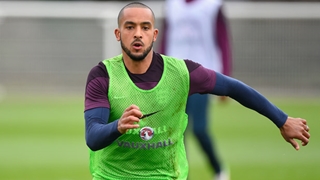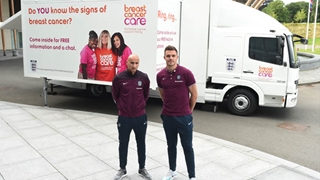
Theo Walcott, Jonjo Shelvey and Jack Butland have helped launch a new Breast Cancer Care Roadshow at St. George’s Park.
The mobile service, funded through the official charity partnership between Breast Cancer Care and The FA, is touring 38 locations in England to raise awareness of the signs and symptoms of breast cancer.
The Three Lions trio – in situ as they prepare for the Euro 2016 Qualifying double-header against San Marino and Switzerland – were on hand to lend their support to the worthy campaign.
And Butland said he was delighted to do what he can.
"Some people might be surprised that a men's football team is supporting it, but we can make a massive impact," he told Sky Sports.
"Players' wives, supporters' wives, girlfriends and daughters – we can have a massive impact on the disease and raise awareness [of] it.
"Hopefully with this bus and the campaign we can help educate people and help them understand more and prevent people suffering from it.
"We fill out Wembley with 80,000 people and if we can inspire more people to help the charity it's a great start."
Every year around 42,000 people are diagnosed with breast cancer in England – the equivalent of more than 100 people a day. This is predicted to rise to almost 50,000 by 2020.
Knowing what warning signs to look for can lead to earlier detection of breast cancer. This can be crucial in providing more effective treatment and, ultimately, saving lives.
Breast Cancer Care and The FA are coming into the heart of the community to urge people to check their breasts regularly for any unusual changes.
Staff and trained volunteers will be on board the bus to provide breast health information, signpost to support services and encourage women of all ages and backgrounds to get to know their breasts.
Davinia Green, head of Breast Awareness and Early Detection at Breast Cancer Care, added her own words of support for the initiative.
She said: “Anyone can be at risk of breast cancer, no matter what their age, gender or ethnicity, so it’s really important that people are aware of any unusual changes in their breasts, and act quickly if they are worried about anything.
“People can visit our bus to ask questions about breast cancer and find out more about the signs and symptoms. All information and support is free and confidential, and there’s no need to make an appointment.”




